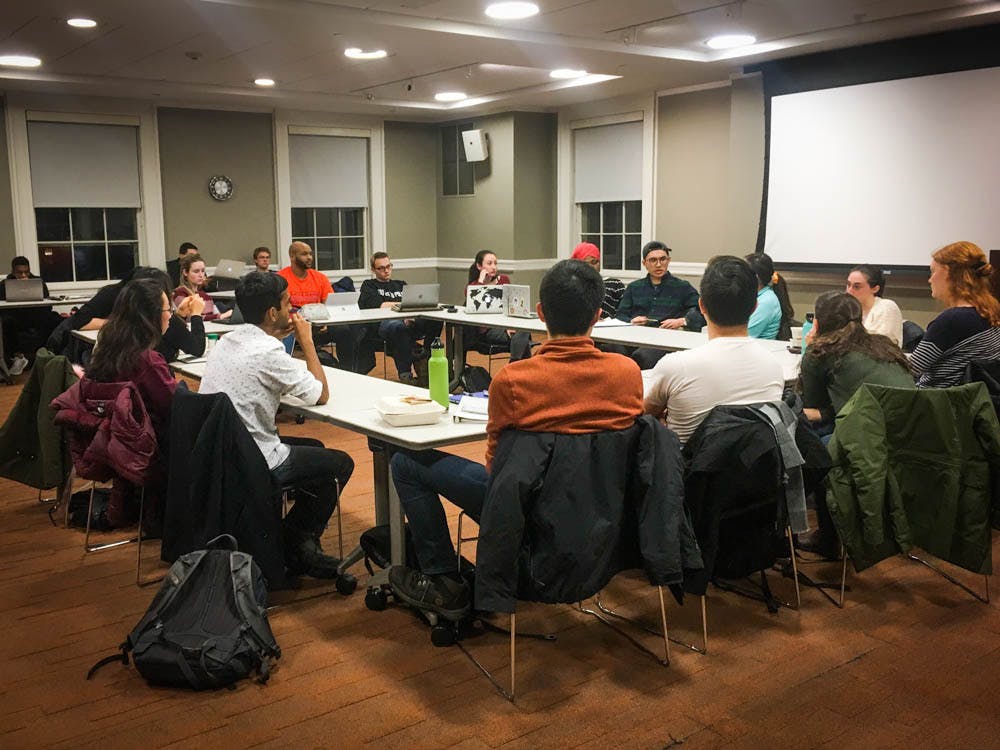The Undergraduate Council of Students unanimously voted to both amend the Campus of Consent Bill and hold a referendum concerning legacy admissions on the 2018 election ballot at its general body meeting Wednesday night. The campus-wide referendum will ask whether the University should “disclose all internally written admissions policies and disaggregated data about legacy treatment” and further “charge a joint committee of students, alumni and administrators to re-examine the use of legacy status in the admissions process.”
Students can vote in the referendum from March 20 to 22 through an online survey that will be sent to all undergraduates. This ballot will also include voting for the next UCS executive board and Undergraduate Finance Board chair, vice-chair and at-large members.
Under the amended Campus of Consent Bill, all Category III student groups will be required to send two representatives to one of six trainings during the 2018-19 academic year or risk losing UFB funding. Each student who attends the training may represent up to three clubs. The trainings will be organized by UCS and hosted by student groups such as the Sexual Assault Peer Education program.
The Campus of Consent Bill has undergone several revisions since it was first passed in spring 2017. The original bill required that all Category III student groups have at least one member of their executive boards trained as a “SAPE liaison” by the end of spring 2018. But SAPE was not equipped to facilitate training for all student groups, The Herald previously reported.
To decrease the burden placed on SAPE, “UCS is taking on the labor of organizing and setting up those trainings, making sure they happen, making sure that the logistics of that go smoothly,” UCS President Chelse-Amoy Steele ’18 said.
Earlier this semester, Steele proposed requiring clubs to amend their constitutions to outline how they would work to prevent incidents of interpersonal harm within their groups. That provision was removed in the final version of the bill because “constitutions really dictate the way that a student group functions, and the role of UCS isn’t to dictate how student groups themselves should run,” Steele said.
The general body also voted to add the legacy referendum to the ballot in response to advocacy from students representing the #FullDisclosure Campaign, a coalition of student groups from universities including Brown, Yale and Princeton that aims to increase transparency about the role of legacy status in the admission process.
“If a policy is historically racist, brings little to no financial value to the university, and is unpopular, I think at the very least it deserves a re-examination, which is what this campaign is all about,” said Shawn Young ’19.5, who attended the general body meeting on behalf of #FullDisclosure.
Young said the campaign is pushing for access to data to clarify the effects of legacy status on admission. “We’re not against legacy, we just want to see all the data before we can have a more informed conversation about it,” he said.
UCS Parliamentarian Austin Lessin ’19 noted that the University’s administration “can do nothing” even if the referendum receives support from the student body.
“There’s already an inherent power dynamic here, because even if we get 100 percent of students at this university to vote yes, they don’t have to do anything,” Young said. “The whole point of this is … to create a strong enough advocacy campaign so that they have to respond.”





